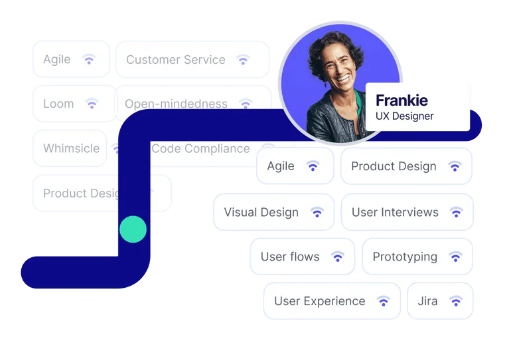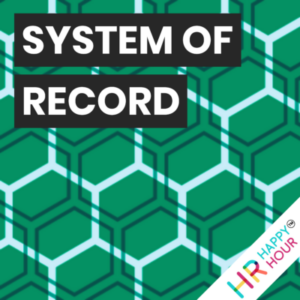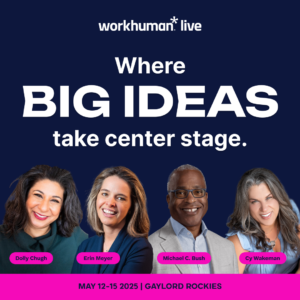The Evolution of Talent Management: Reejig and the Skills and Work Ontology Approach
July 12, 2023
One of the most vexing and challenging dilemmas that can face human resources and talent leaders is when the organization is simultaneously hiring aggressively for certain roles while having to let others go due to a lack of meaningful work for some individuals. This situation destroys the morale of the organization and leads to rank-and-file employees questioning the integrity and intelligence of the organization’s leadership. How can we be both laying off workers while hiring many more at the very same time? Are we not able to realign our people, train them as needed, to meet demand for new skills and projects?
The sad answer to that last question has typically been “No”. For many organizations, despite probably having valuable information about their employees, it was scattered across various systems and platforms, making it difficult to discover and identify individuals’ skills, potential, passion, and preferences. Most organizations lack a modern talent intelligence system that could centralize this information about employees and help the organization avoid wasting employees’ potential.
Solving this challenge and developing such a talent intelligence system was the inspiration for the mission of Siobhan Savage and has led to the founding of Reejig. Inspired by her prior experiences as a talent manager, Siobhan became obsessed with the idea of reducing wasted potential and started a mission to create meaningful careers for everyone. The fundamental premise is that everyone, regardless of their background, should have opportunities to reach their full potential.
Reejig and their mission have emerged at the right time – a time when many organizations have begun focusing on skills-based approaches in talent management. Traditional job structures based on full-time fixed positions are not scalable in the rapidly changing world of work, making newer and more flexible approaches to managing and developing talent a necessity. In fact, the future workforce will be based on a combination of fixed workers who can be agile, contractors, consultants, and alternative workers like Chat GPT.
How can organizations effectively make this, admittedly difficult, transition from traditional organizational charts and job-description based structures that dominate talent management?
To effectively manage the workforce, Siobhan and Reejig suggest breaking down job descriptions into clusters of skills and tasks. Then highlight the necessity of specific qualifications and validation for certain roles, such as nursing or product design. The goal is to unbundle work and then have the flexibility to assign different parts of a traditional job to various individuals within the talent marketplace and ecosystem, whether they are internal employees, contractors, alternative workers, or even technology solutions like RPA or AI.
Reejig has a concept to facilitate this transition, the “Work Ontology” which exists alongside the traditional “Skills Ontology” to solve the problem of meaningful work placement. Understanding both the skills of individuals and the structure of the work that needs to be done through a Work Ontology is crucial. An up-to-date Work Ontology can address the challenges and the limitations of job architectures, and the cost and time involved in maintaining them.
Taking on this transition to skills-centric talent management, and a deep understanding of how work gets done does require both a mindset shift as well as capable, modern technologies providing support and intelligence. Reejig enables the organization to understand employee skills beyond just extracting skills and context from LinkedIn profiles or CVs. It helps to collect skills from a person’s entire career and not rely solely on job titles, as skills evolve with changing job requirements. Simply matching skills based on job titles does not provide a complete picture of an individual’s abilities.
Additionally, breaking down work and comprehending the true meaning of jobs to be done is crucial. Each company has its own unique interpretation of job roles, and relying on user-uploaded job information can lead to inconsistencies and confusion within the algorithmic models used by HR systems or talent marketplace technologies. Reejig enables the establishment of a well-defined work ontology to ensure clarity in understanding job roles.
Additionally, Reejig is able to integrate seamlessly into an organization’s existing HR systems and provide an intelligence layer that empowers customers to make informed decisions about talent. They offer engagement layers that accommodate different levels of interaction, from nudges that direct individuals back to the existing system to a self-service talent marketplace concept. The focus is on leveraging existing technology investments and enabling individuals to engage effectively with the data and tools they have at their disposal.
In summary, we are all entering a period with the transformative potential of a new wave of AI-powered HR technology solutions at the forefront, and we can now envision future career paths for individuals based on their evolving skills. For HR leaders, the opportunity to embrace the learning opportunities provided by these tools is critical, as they present a unique chance for HR professionals to gain insights, valuable knowledge, and help them to achieve the goal of Zero Wasted Potential.
You can listen to our full conversation with Siobhan Savage from Reejig on the HR Happy Hour Show here – https://www.hrhappyhour.net/episodes/the-future-of-work-how-ai-is-changing-skills-jobs-and-careers/.
Learn more about Reejig and their mission of Zero Wasted Potential here – http://reejig.com/
How we can help
Led by Trish Steed and Steve Boese, H3 HR Advisors harnesses over 40 years of experience to delivery HCM insights and guidance to global organizations.
H3 HR Advisory services
By leveraging technology, analytics, and our deep industry knowledge we can help you to reposition your workforce and ensure that you have the right people with the right capabilities in the right roles to positively impact the growth of your business.
HR Happy Hour Podcast Network
Created in 2009, The HR Happy Hour Show is hosted by Steve Boese and Trish Steed and is the longest continuously running internet radio show and podcast on Human Resources, HR Technology, Talent Practices, Workplace and Leadership topics.
H3 HR Speaking Services
We work closely with every client to customize your content - keynotes, webinars, research, infographics, and buyer’s guides - to inspire, educate and inform the audience enabling you to reset and realign your organization for a talent-led breakthrough.
Get in touch
Talk to us today and find out how we can help you and your organization leverage HCM technology to attract, onboard, retain and manage top talent.




